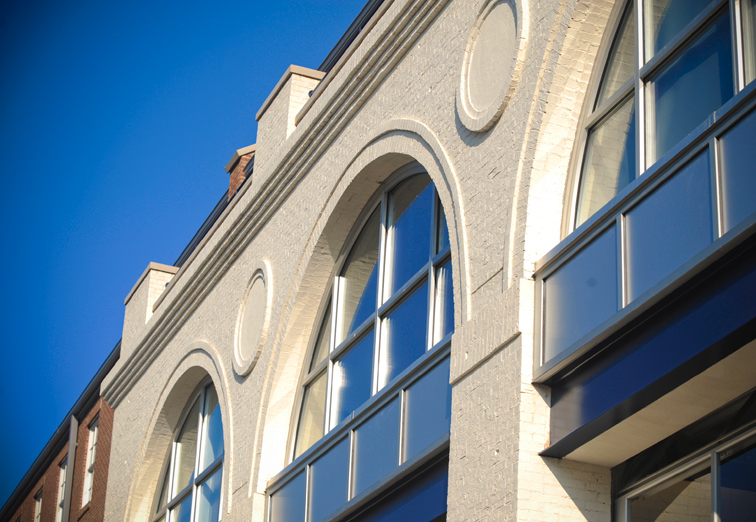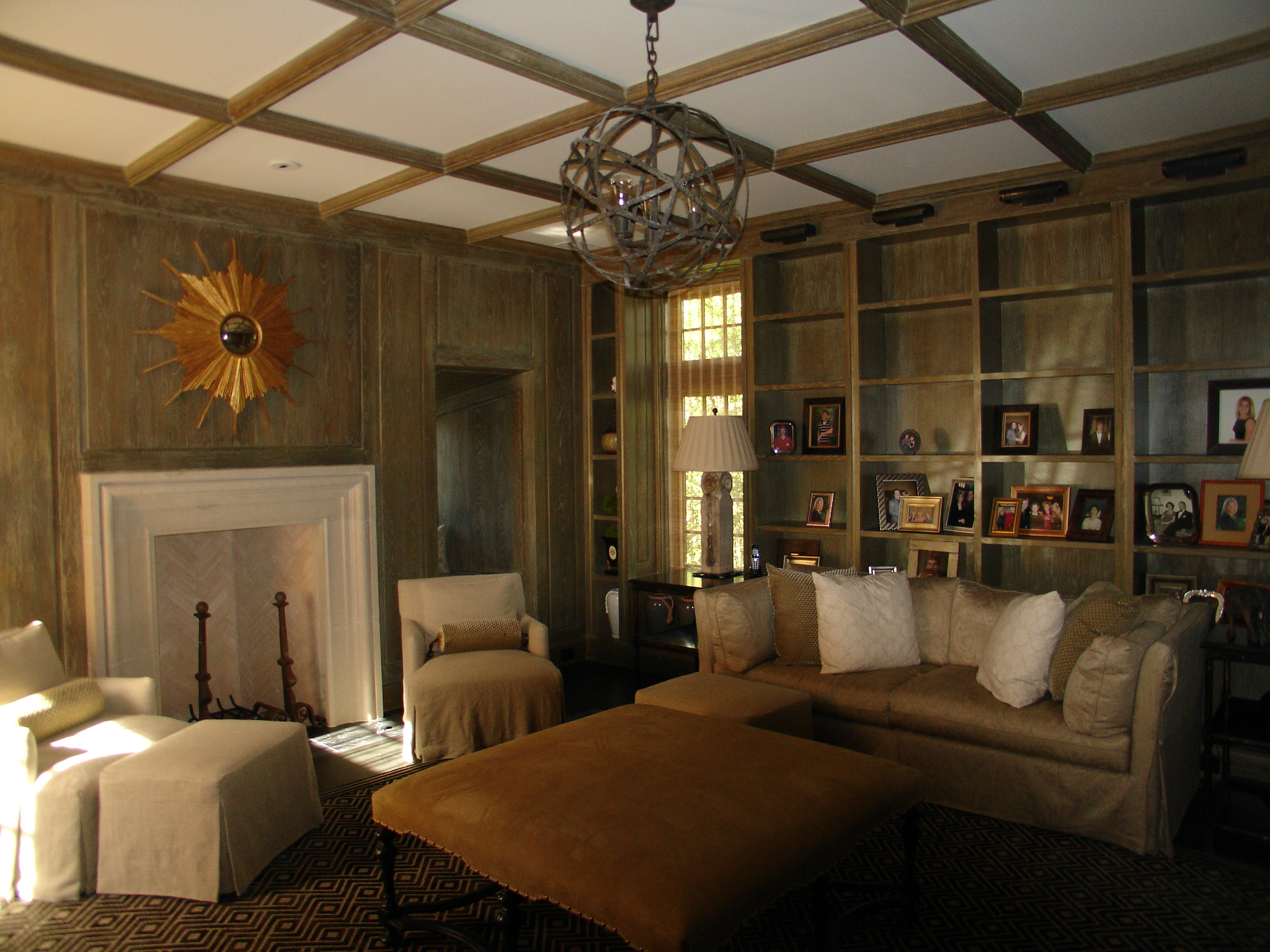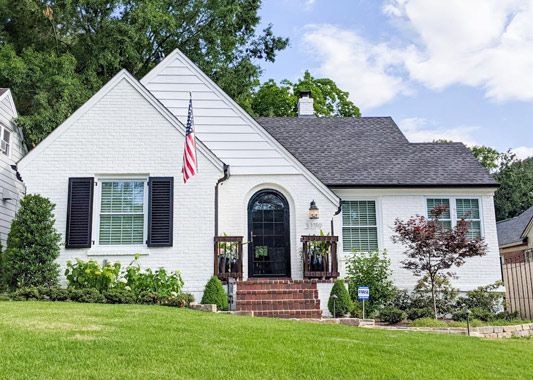ROMABIO BioCalce (limewash) applied on brick in Virginia

Applied on stucco in Florida
Applied on brick at Wofford College in South Carolina

Applied on wooden beams indoors
Applied on Brick in Atlanta, GA
Applied to walls and beams for a residential interior in Atlanta
What is Lime Wash?
A lime-based product produced from sedimentary rock rich in carbonated lime (CaCO3) and extracted from quarries in the Dolomites. It can also be produced from marble (henceforth the principal reason marble was extracted from the roman ruins in the Middle Ages). The sedimentary rock is crushed and then placed into ovens that are heated to about 800°C – 1,200°C for 1 to 2 days. In this phase a reaction occurs and liberates andride carbonic, reducing the weight of the stone by a third as a result of the loss of carbon and oxygen. This is called Active Lime, and for the final phase of this material to be used in plaster and paint, it must be deposited in pools where water can be added slowly over a 2 year time period, wherein intense heat is generated and the Active Lime becomes Inactive Lime (Slaked Lime).
The phenomena of this carbonization is that when Inactive Lime is mixed with inert materials, such as other lime, sand, marble dust, and water, and is applied to a surface, making contact with air (CO2), it dries and returns to the same identical rock from which the lime was formed, although in crystalline particles far smaller than the original stone. Lime based products made from this process can endure for centuries and is non-polluting to the environment.
Limewash is ideal for indoor and outdoor use, commercial and residential, and in any climate. ROMABIO’s organic BioCcalce (limewash) contains ZERO APEOs, PEGs, Solvents, and asthmatic triggers and is .













 Photo Credit: Caldwell House, TN
Photo Credit: Caldwell House, TN